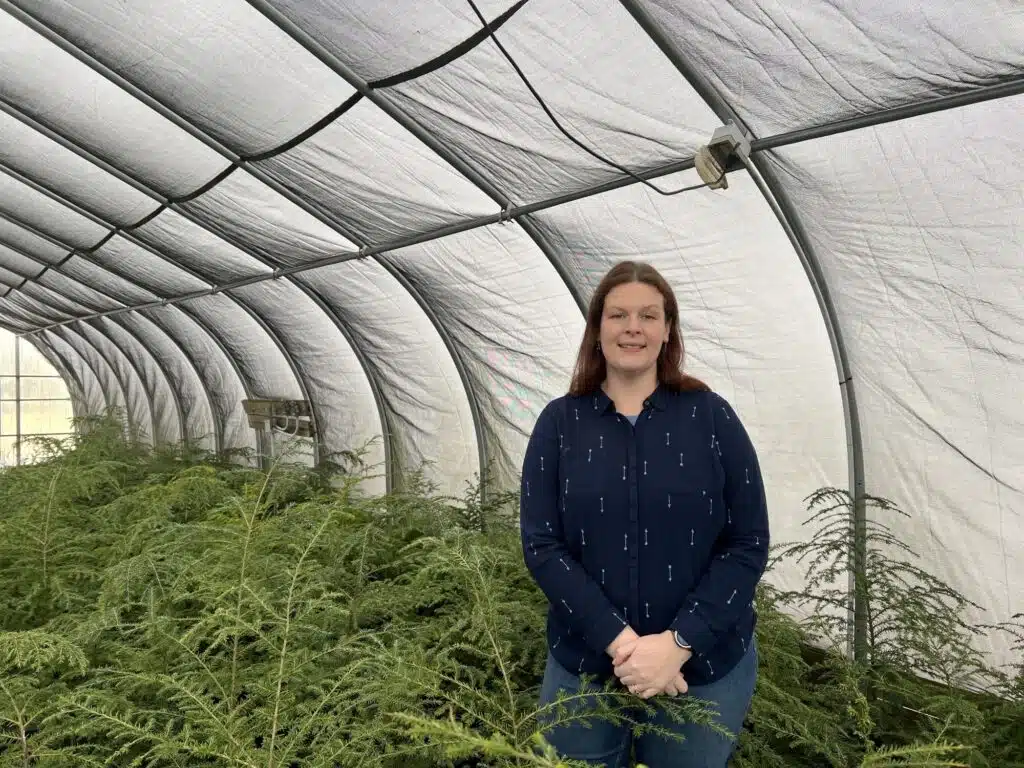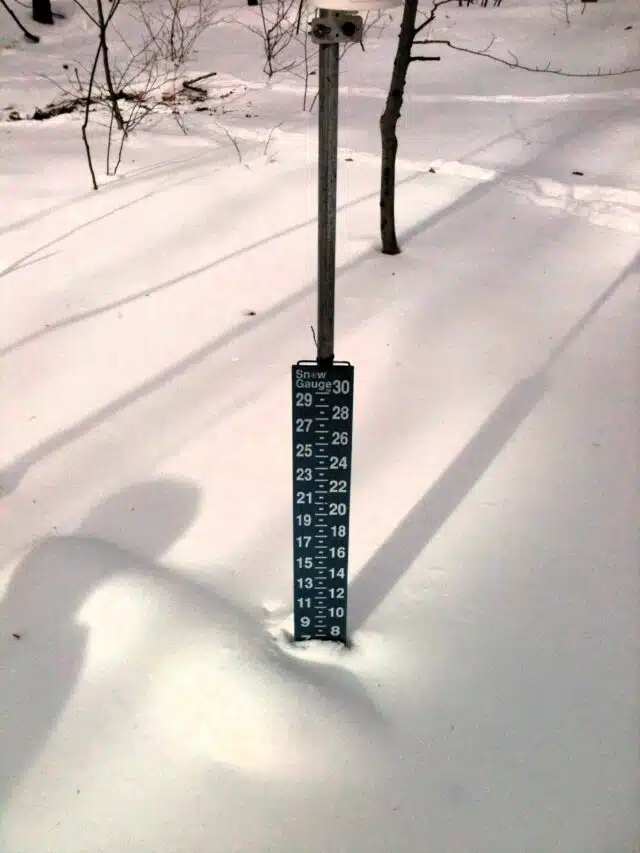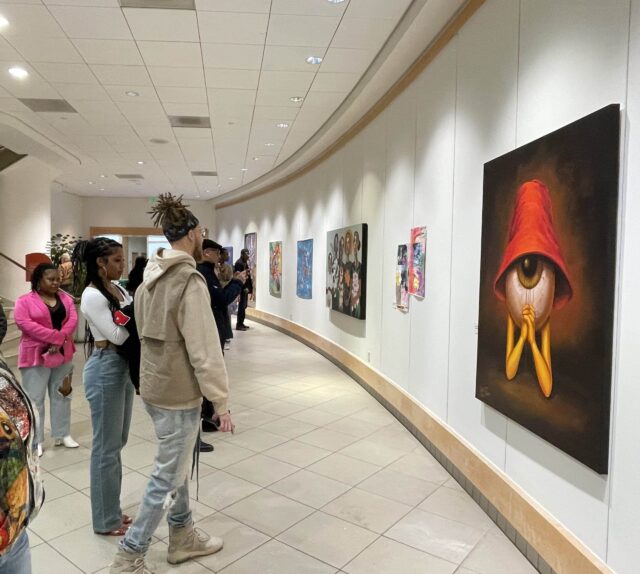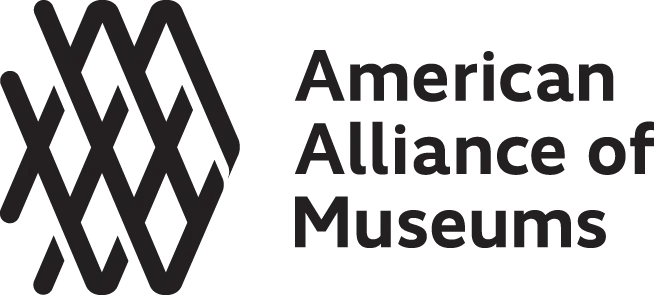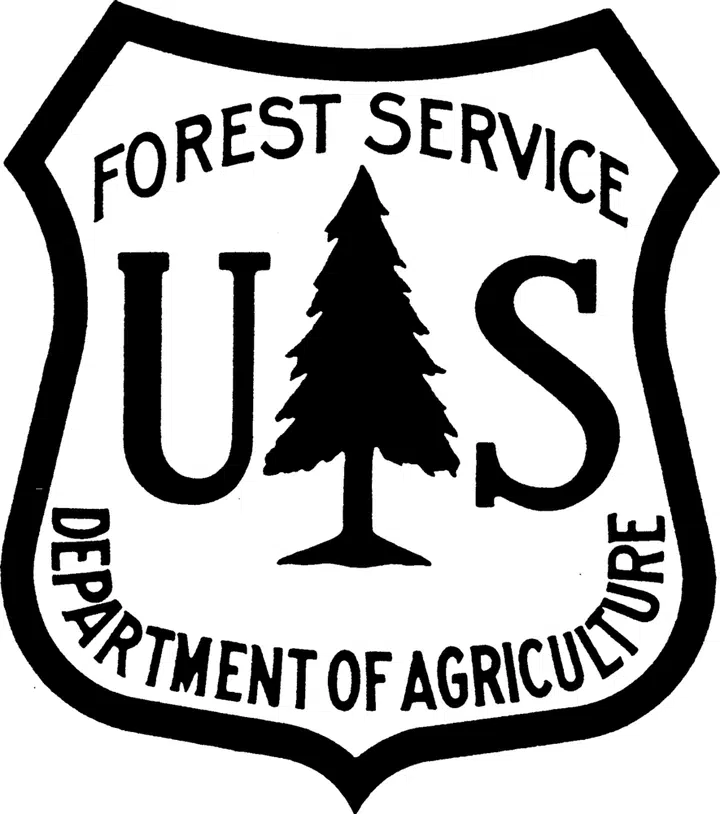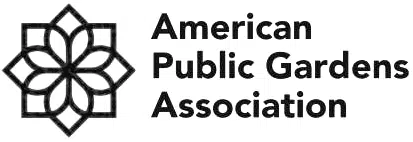Celebrating International Day of Women and Girls in Science
February 11, 2025

Science thrives on curiosity, innovation, and diverse perspectives. International Day of Women and Girls in Science is a day to celebrate the trailblazers who have shaped our world, inspire the next generation, and advocate for a future where everyone has the opportunity to explore, experiment, and excel in science. Learn about the careers and aspirations of a handful of our talented scientists below:
Emily Hilpman
As the Norweb Fellow in Katie Stuble’s lab, I focus on community ecology in NE Ohio forests. I assist on numerous ongoing projects in the lab broadly focused on forest health, phenology (like when the first plants flower in the spring), and restoration management. Currently, I am statistically analyzing data collected for six years from Working Woods to determine if restoration efforts and invasive species management in 2018/2019 have affected tree seedling growth and survival.
Dr. Sarah Kyker
As a microbial ecologist, my research focuses on the smallest inhabitants of our planet. Microorganisms may be microscopic, but their activities can have a significant effect on ecosystems. Bacteria, for example, are important members of soil for decomposition and can be associated with plant roots to help with nutrient acquisition.
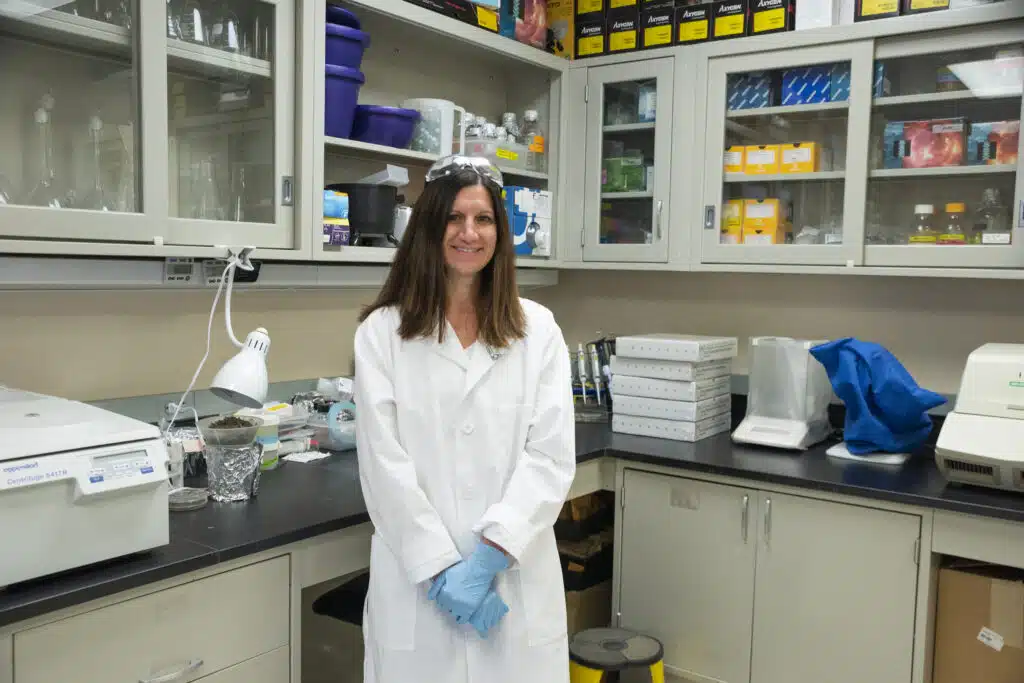
Dr. Juliana Medeiros
My research focuses on understanding how plant traits such as leaf shape, size, and color relate to plant growth, and how these traits can help plants keep growing under stressful conditions. Our team is developing Rhododendron as a model system for understanding the evolution of climate tolerance, especially focused on creating rapid image-based screening techniques, allowing us to better understand variation in climate tolerance traits within populations and among species. This work sheds light on the potential for plant traits to evolve in response to climate change, informing conservation decisions, and providing horticulturalists with new target traits to consider for selection and breeding.
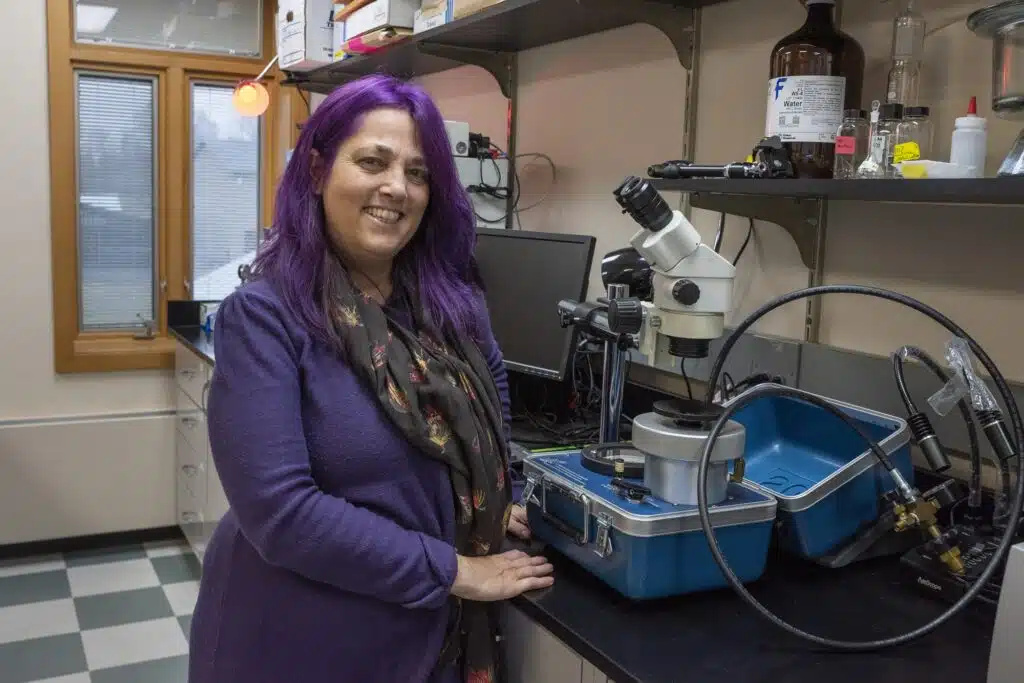
Dylann Nakaji-Conley
I am currently studying anthocyanins and carotenoids (what you see when leaves turn red and yellow in the fall) in Rhododendron species collected in the wild from all over the world! I want to learn how these photoprotective pigments play in plant adaptation, photosynthesis, and stress tolerance in various climates and environments so we know how plant communities might shift in the face of climate change.
Chelsea Obrebski
My research focuses on studying plant pathogens and diseases in eastern hemlock, American beach, and ash trees. I specifically focus on hemlock woolly adelgid, beech leaf disease, and emerald ash borer. My efforts are all in pursuit of helping these tree species and forest ecosystems fight against diseases that threaten them.
Brianna Shepherd
I am currently the lead on a forest monitoring project investigating the impact of Beech Leaf Disease (BLD) on the forest ecosystems. BLD was discovered in Lake County, OH in 2012. It has since spread to 15 states throughout the eastern United States and the Canadian province of Ontario. The disease is associated with the presence of a non-native nematode, Litylenchus crenatae sub-species mccannii. My work focuses on answering the impact BLD has on our forests. Understanding disease dynamics and ecosystem-wide impacts is a major step in beginning the process of management and mitigation efforts to slow the spread of BLD. Forest health research, such as this, is a vital safeguard for the health and resilience of our forests for future generations.
Dr. Katie Stuble
I’m a restoration ecologist here at the Holden Arboretum. My lab members and I explore the challenges faced by the forests of Northeast Ohio, but also, critically, work to identify solutions to these challenges. Recent research in the lab has explored topics ranging from the efficacy of controlling nonnative shrubs during forest management to the impacts of beech leaf disease on Ohio’s forests. We work to find solutions, ensuring healthy and resilient forests now and into the future.
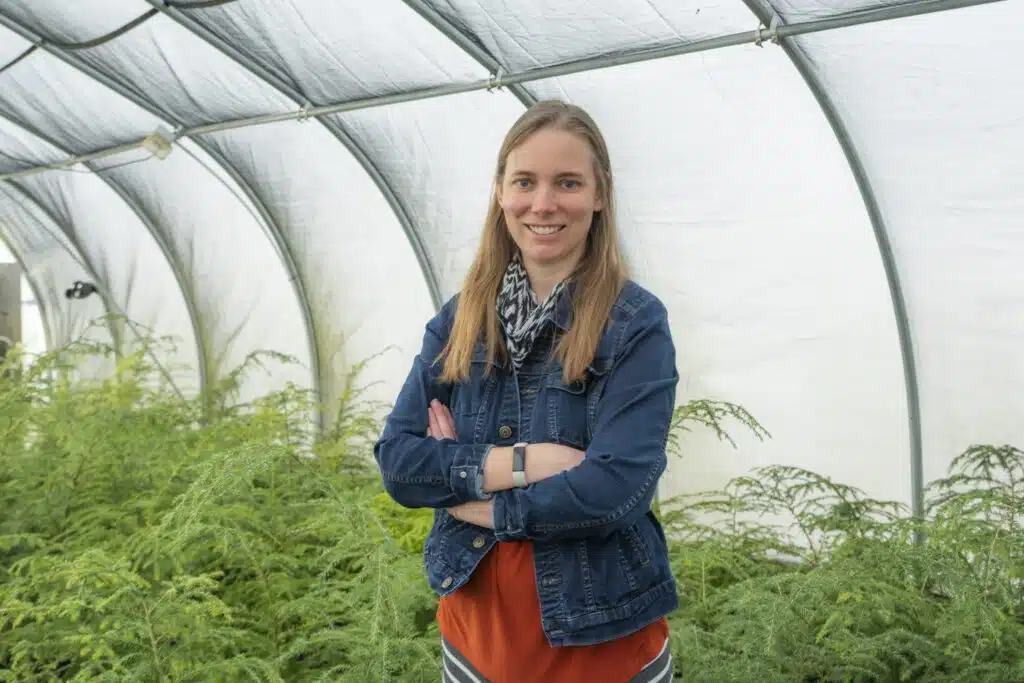
Catalina Valderrama
I am interested in how temperature affects various traits of Rhododendron species, such as phenology, pollination, and volatile organic compounds, responsible for the scents produced by flowers and leaves. This information is crucial for evaluating the changes and vulnerability of different Rhododendron species in response to rising temperatures.
Claudia Victoroff
I am a fungal ecologist focused on connections between soil fungi and forest restoration outcomes. As a research specialist at the Holden Arboretum, I focus on the role of soil fungi in urban canopy restoration in Cleveland, OH, and how Mycorrhizal fungi might improve the outcomes of urban restoration efforts. I am also pursuing a PhD in Biology at Cleveland State University and plan on leading my own lab someday. Beyond my research work, I enjoy discussing the importance of fungal research and conservation with diverse audiences through teaching, writing, and mentorship.
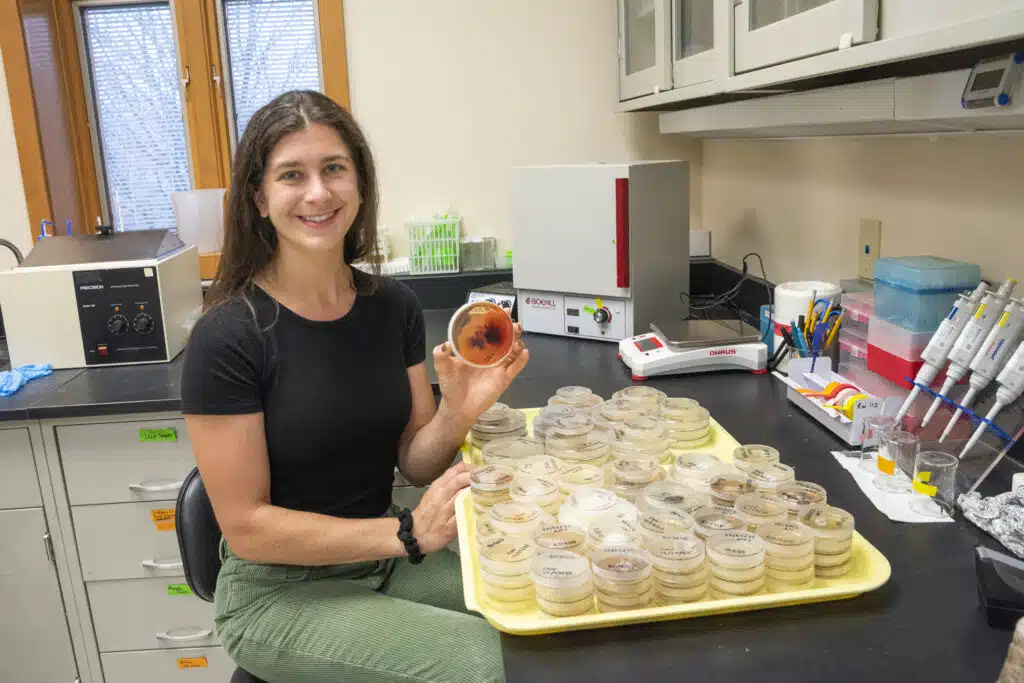
Dr. Rachel Kappler
I am the coordinator of the Great Lakes Basin Forest Health Collaborative, a partnership network supported by the United States Forest Service and Holden Forests & Gardens research center. I help facilitate partners’ tree activities for pest-resistance breeding in current priority tree species. This helps improve forest trees for the future. Previously my work was focused on research related to the ecological interactions within the ash-EAB forest ecosystem and ash restoration efforts. Before returning to complete my PhD, I worked partially as a community college teacher and a seasonal researcher with various parks and universities on Forest Service and Fish & Wildlife Service projects. I completed my master’s thesis research on white footed mice predation of blue lupine seeds, a potentially threatened plant. Throughout this journey I have kept my passion for conserving our natural world the main focus and took positions that may not be congruent except for that one fact. “Think globally, act locally”, is a motto I keep in mind.
